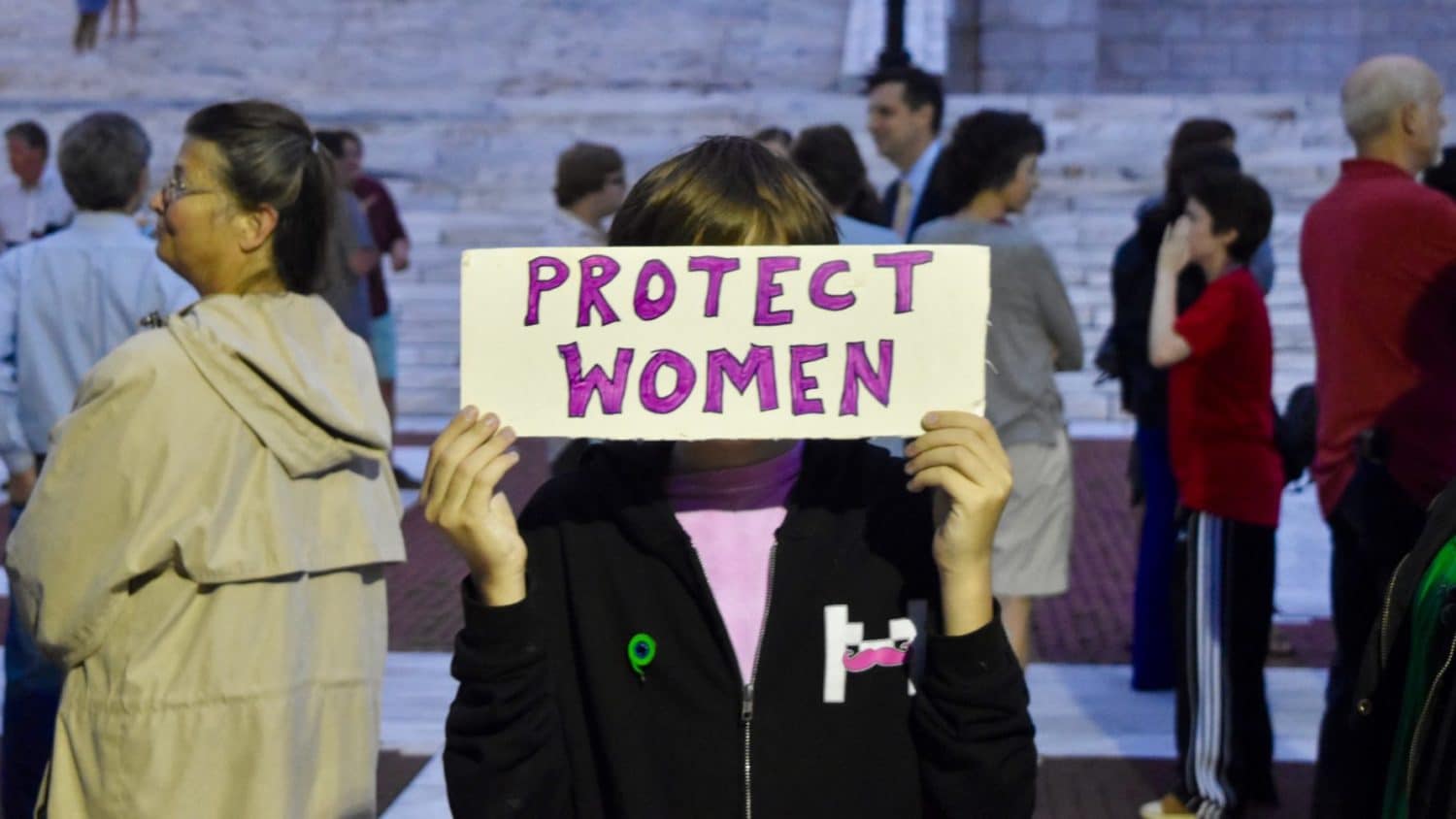The Woman Project is working to protect your health care
On exactly what grounds are Conservative Democrats, Rhode Island House Speaker Nicholas Mattiello and Senate President Dominick Ruggiero, blocking the Reproductive Heath Care Act (RHCA) from consideration? That it’s unnecessary? I remember a motion congratulating the mid‐season New England Patriots passing the General Assembly earlier this year when I looked online at what my local representative, Kenneth Mendonca (Republican, District
November 2, 2018, 11:18 pm
By Ezme Webb-Hines
On exactly what grounds are Conservative Democrats, Rhode Island House Speaker Nicholas Mattiello and Senate President Dominick Ruggiero, blocking the Reproductive Heath Care Act (RHCA) from consideration? That it’s unnecessary? I remember a motion congratulating the mid‐season New England Patriots passing the General Assembly earlier this year when I looked online at what my local representative, Kenneth Mendonca (Republican, District 72, Portsmouth), had been doing on my tax‐paid dime (evidently, not a lot).
Why was a motion of mid‐season congratulations necessary, but giving Rhode Island women (and those who care about women) the peace of mind that their state government will protect their rights to safe healthcare not necessary?
In pursuit of a useful direction for my persistent rage response to politicians (and those who vote for them) seeking to limit my bodily autonomy, I reached out to inspiring, productive women working on legal protections for access to safe, affordable family planning for everyone.
Following the 2016 election, a group of Rhode Island artists and activists feeling disconnected from Providence politics created The Woman Project – a feminist, womxn‐identifying and womxn-suporting organization with the goal to use creative solutions towards protecting access to reproductive health care legislation in Rhode Island.
After learning that Rhode Island received an F for reproductive rights from NARAL Pro‐Choice America, partly due to there being no state laws protecting access to abortion, The Woman Project’s legislative goal became to improve this situation through the passing of the RHCA (the legislation being blocked by Mattiello and Ruggiero).
Engaging art to connect people, co‐founder Jocelyn Foye said, The Woman Project aims, “to build an inclusive movement and to lift up voices we might not always hear.”
Towards this goal, The Woman Project hosted a Speak Up, Speak Out event last month to share personal stories of reproductive oppression.
“We hoped in organizing a safe space for people to tell their story alongside others who have empowering messages of support from a pre‐Roe, during‐Roe and post‐Roe perspective, we created a unique opportunity.
“We wanted to give everyone that attended the event, or is watching now with the videos from UpriseRI, the spectrum of work that has, and is, being done on reproductive rights.
“We have been so inspired to have the support of many women who were working on this issue before Roe v Wade,” continued Foye, “We know they worked tirelessly to see abortion legalized. Through their work and struggle, we have the rights established today.”
President Trump has signaled that he wants to roll back those rights, and is closer to that goal with his United States Supreme Court appointments of Neil Gorsuch and Brett Kavanaugh, who have both signaled they don’t believe in the rights Roe v Wade was established to protect.
Foye said the Rhode Island community can best support The Woman Project’s goals through engaging “in whatever ways works for them in their lives.
“Calling their legislators, writing postcards, signing a quilt square on our petition quilt, telling their friends and families about this issue, showing up at the State House.”
“Family planning is a human rights issue,” continued Foye. “Deciding when, if and how to become a parent is a fundamental right that in America and Rhode Island should be the status quo.”
The Woman Project understands reproductive healthcare rights as an intersectional issue.
“Having access (both economic and physical) to doctors, hospitals and clinics that provide care is different based on what neighborhood you live in, what your income is, what your body is able to do and if you can find a doctor who you feel comfortable working with,” said Foye.
“The economic and social realities of the lives of people who need abortions and contraception are different based on the multiplicity of oppressions people face based on class, race, ability, gender identity, and sexuality,” continued Foye. “We understand that if a person is forced to birth a child that they cannot care for, the trajectory for their lives will be radically different. Their ability to support themselves and their families will be altered, their life choices will be limited.
“If we lose Roe federally without passing the RHCA, we will have people from all classes, races, abilities, genders, [and] sexualities resorting to unsafe abortion practices that can have life‐long consequences including death.”
71 per cent of Rhode Islanders support passing the RHCA, but Mattiello, Ruggerio and their colleagues seem too busy with far more necessary “Go Pats!” motions to govern for such a majority.
Part 2, interview with Speak Up, Speak Out Keynote Speaker, Laura Harmon, organizer from Ireland’s ‘Together for Yes’, the successful campaign to ‘Repeal the 8th’ (amendment criminalizing abortion) to be published shortly.






